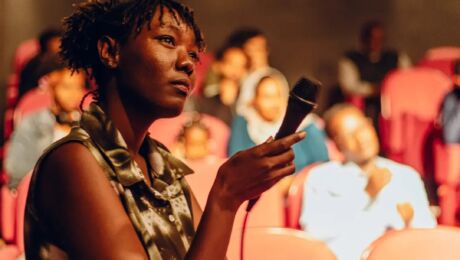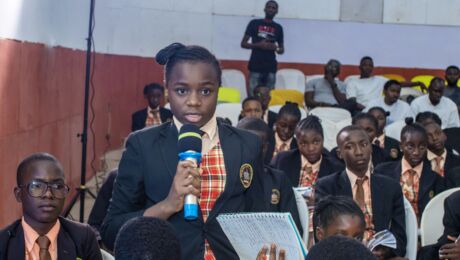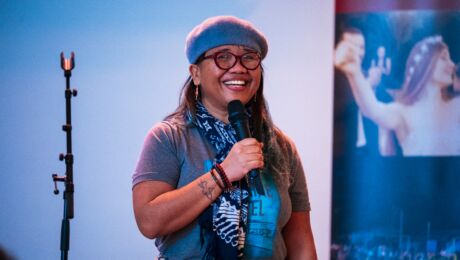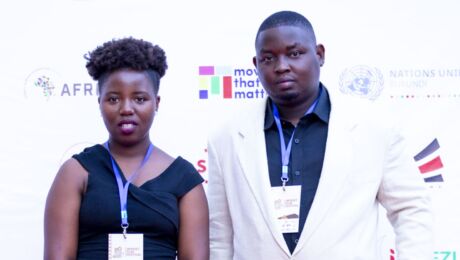Abdoulaye Diallo on Using Film to Challenge Injustice and Amplify African Voices
In Burkina Faso, a country grappling with conflict, displacement, and deep uncertainty, filmmaker and film festival organiser Abdoulaye Diallo has chosen the camera as his tool of resistance - and the film festival as a stage for hope. We spoke with him about his view on films in relation to human rights and how the Human Rights Film Network offers a sense of solidarity to other human rights film festival organizers. 17 June, 2025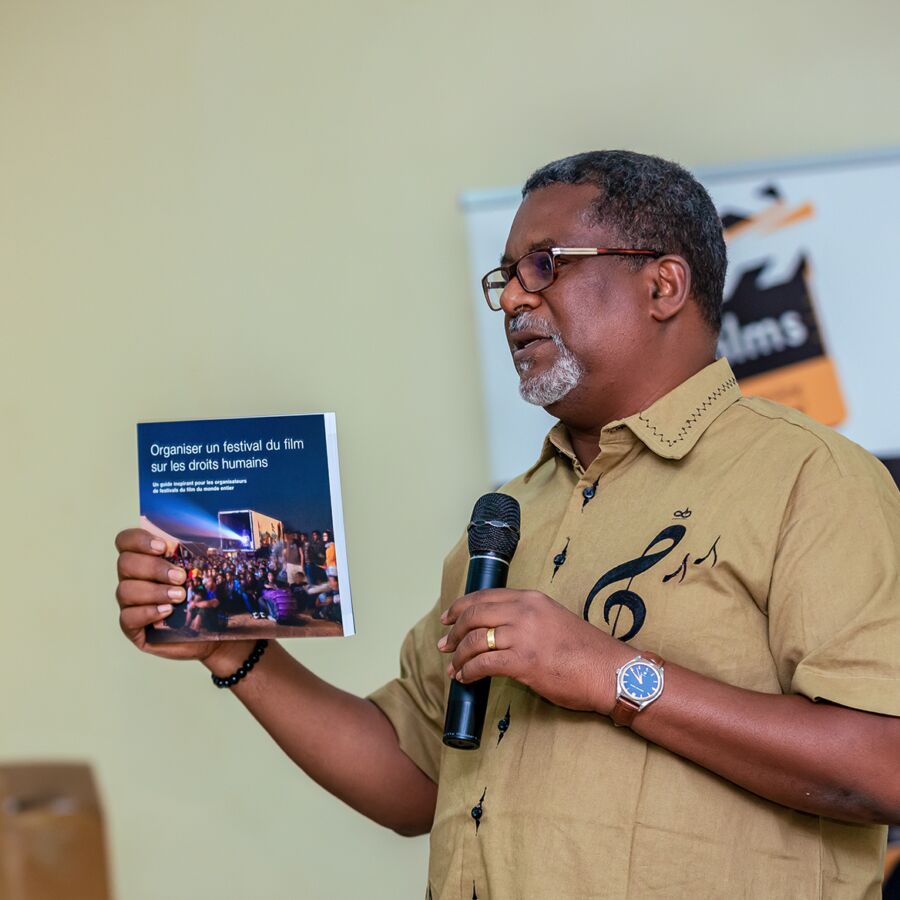
Abdoulaye Diallo’s path to filmmaking wasn’t easy. Born in Ivory Coast, he studied history in Burkina Faso. After graduating, he worked as a radio host. That was until he met renowned journalist Norbert Zongo, who influenced his perspective. Trained in journalism and driven by a desire to document, Abdoulaye came to see film as a powerful way to capture the complex realities of his native country. Abdoulaye said, “Film has allowed me to deepen my knowledge and connect more emotionally and politically with people’s lives.”
Abdoulaye explains that Burkina Faso is now fractured by numerous conflicts. In recent years, extremist violence has driven more than two million people from their homes, and he has witnessed these upheavals firsthand. “The country is suffering enormously,” he says. “There are people who have fled their villages and are now living in schools, in tents… people who have lost everything.” Today, freedom of expression and freedom of the press are seriously threatened.
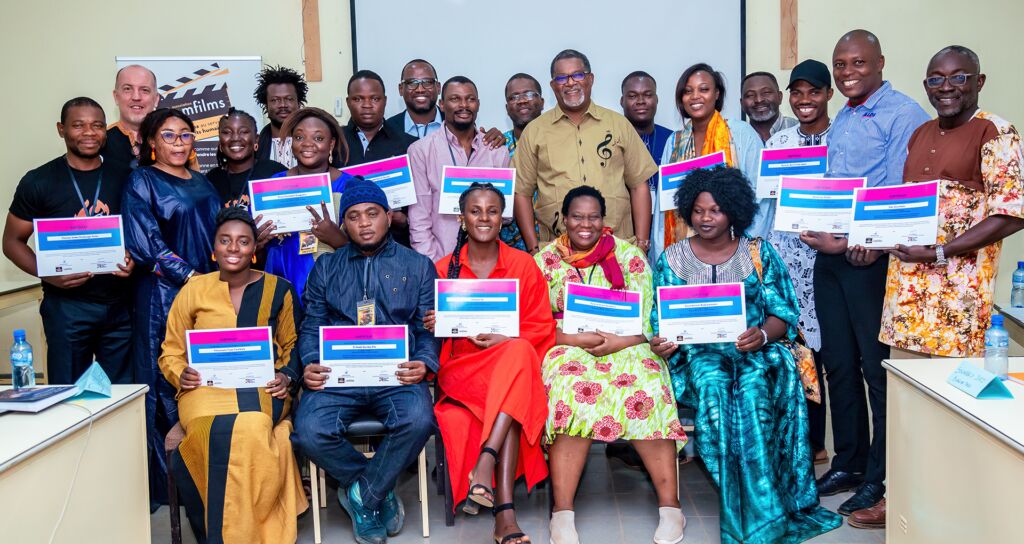
Abdoulaye’s path to filmmaking was more instinctive, driven by a need to document and express himself. He sees filmmaking not only as an art form, but also as an urgent intervention. In a media landscape that often distorts or ignores African realities, he insists on local storytelling and emphasizes human rights. “If we don’t tell our own stories, others will tell them for us, often inappropriately,” he says. This is why, through cinema, he tries to give back to the Burkinabés their power of action, in particular to those who are rarely seen or heard.
It was the conviction that storytelling has the power to transform perception that ultimately led Abdoulaye to co-found a film festival dedicated to human rights: Ciné Droit Libre, headquartered in Ouagadougou but expanding to all regions, including those heavily affected by conflict. He emphasizes the importance of building, in such spaces, a sense of shared African identity, beyond national borders. Abdoulaye:
Many young people today grow up watching Hollywood or European films. They don’t see themselves. We must make room for African perspectives, African aesthetics, African struggles, and African joys.
The festival is both a cultural revival and a political statement. “We want to decentralize cinema, to bring it to places where people don’t have access to screens, films, or spaces for dialogue,” explains Abdoulaye. Despite security concerns and logistical obstacles, the team persists. Abdoulaye: “Even without electricity, we bring a generator. We show films under the stars.” The festival’s importance goes beyond mere entertainment. It’s about reclaiming public space and stimulating collective imagination in the face of violence. “Terrorists don’t want people to gather. They want fear and silence. But when we get together to watch a film, something changes. We feel less alone,” he explains.
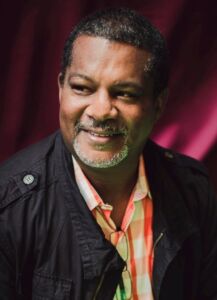
His vision is also rooted in solidarity. He believes in building bridges between filmmakers across Africa and beyond, especially those working in conflict zones or on the margins. “We can’t just wait for international institutions to support us. We have to support each other,” he says. His festival includes not just local stories, but also films from Mali, Niger, and the broader Sahel region —creating a tapestry of voices navigating similar struggles. He stresses that, next to that the festival also insists on the nuance of humanity. “Yes, there is war. But there is also laughter, beauty, memory, dreams,” he says. “Cinema gives us also a way to hold all of that.”
Through his film festival, Abdoulaye is one example of many film festivals that use film as a tool to promote human rights, challenge injustice, and amplify marginalized voices. With his festival, he is therefore part of an international coalition that exists of over 50 film festivals and is called the Human Rights Film Network. Movies that Matter is one of the co-founders of this network and coordinates its secretariat.
For Abdoulaye, being part of this network offers both solidarity and visibility. The network offers not only practical support – such as resources and advice – but also a strong sense of community and solidarity. For activists like Abdoulaye, who often work in challenging or even dangerous environments, this international support system is not just helpful – it’s crucial. “It’s powerful to know you are not alone, but being part of something bigger,” he says. “People are working under different conditions, but with the same belief: that film can open eyes, open hearts, and sometimes even change laws.” For him, the network is a way to keep growing the conversation between local realities and global solidarity, with film as a bridge between them two.
Movies that Matter supports human rights festivals around the world. In this series, we highlight the stories of several people involved in our international programmes to discuss their projects and the impact they are making. The International Support team is committed globally by financially supporting human rights film festivals (Grant Programme), film screenings at embassies (Embassy Film Menu), an outreach programme for activists (Activist Programme), coordinating a partnership between festivals (Human Rights Film Network) and workshop programmes for film festival organisers (Cinema without Borders).
